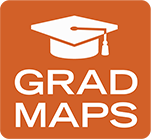| |
Feb 02, 2026
|
|
|
|
|
2018-2019 Catalog ARCHIVED CATALOG: Content may no longer be accurate.
Digital Media Emphasis, Communication (BS)
|
|
 Return to: Telitha E. Lindquist College of Arts & Humanities Return to: Telitha E. Lindquist College of Arts & Humanities
|
Communication Major
- Program Prerequisite: Not required.
- Minor: Students may complete a minor approved by their academic advisor OR one of the tracks associated with any of the six interdisciplinary emphasis areas: Civic Advocacy, Digital Media, Interpersonal & Family Communication, Multimedia Journalism, Organizational Communication, and Public Relations & Advertising. A student may not receive both a major and a minor from the Department of Communication.
- Grade Requirements: A grade of “C” or better in courses is required for this major (a grade of “C-” is not acceptable), in addition to an overall GPA of 2.00 or higher for all courses.
- Credit Hour Requirements: A total of 120 credit hours is required for graduation. A total of 40 upper-division credit hours is required (courses numbered 3000 and above). Between 27-35 credits of upper-division is required within the major, depending on the selected emphasis.
- Program Code: Communication (3017) with emphasis code Civic Advocacy (3051), Communication Studies/Communication Teaching (3016), Digital Media(3068), Interpersonal & Family (3053), Multimedia Journalism (3069), Multimedia Journalism/Communication Teaching (3070), Organizational Communication (3054), Public Relations & Advertising (3055).
- CIPC: Communication (090101) with emphasis code Civic Advocacy (090904), Communication Studies/Communication Teaching (131399), Digital Media(090199), Interpersonal & Family (090101), Multimedia Journalism (099999), Multimedia Journalism/Communication Teaching (131399), Organizational Communication (090901), Public Relations & Advertising (090999).
To enroll in upper-division Communication courses, a student must hold upper-division standing in the university. Students must complete at least 50 percent of their Communication course-work at Weber State University in order to receive a major or a minor in Communication. Advisement Students are encouraged to meet with the appropriate department advisor depending on their selected emphasis. Refer to the Communication Department website for a current list of department advisors - weber.edu/communication.  Use Grad MAPs to plan your degree Use Grad MAPs to plan your degree
Admission Requirements Declare your program of study at the Communication Department office, Elizabeth Hall 330. No special admission or application requirements are needed for this program. General Education Refer to Degree Requirements for either Bachelor of Arts or Bachelor of Science requirements. See specific requirements for the BA and BS under the major course requirements. The following courses, required for the Communication major, will also satisfy general education requirements: COMM 1020 , COMM 2010 , and COMM 2110 . Emphasis Areas Select one of the following emphasis areas in Communication: - Civic Advocacy
- Digital Media
- Interpersonal & Family Communication
- Multimedia Journalism
- Organizational Communication
- Public Relations & Advertising
Major Course Requirements for BS or BA Degree
Students, regardless of their emphasis, must successfully complete required and elective Communication courses specified for each emphasis. Students must complete a minor approved by the department or the classes required in an interdisciplinary track. Required Courses for Major (24 credit hours)
Courses Required to Fulfill the BS (12 credit hours)
Select 4 courses (12 credit hours) from the following. Pick 3 credit hours from Physical Sciences and 3 credit hours from Life Sciences. Digital Media Emphasis (45 credit hours)
An emphasis in Digital Media will teach students about the importance of deadlines, budgets and the impact their actions have on a production team. Advanced students will gain understanding about the art and power of communicating messages through video, audio, and the Web. Students must complete a minor approved by their advisor or select one of the following interdisciplinary tracks: - Entertainment: acquire skills in production, writing, and content development to prepare to pursue further graduate study and careers within the entertainment industry.
- Digital Media Production: acquire skills producing, writing, shooting, editing, directing, and distributing video content. Focused on creating and sharing institutional, educational, and commercial video productions.
Required Courses (30 credit hours)
Three of the following courses (9 credit hours)
Elective Courses (15 credit hours)
Note:
See department advisor for an approved list of non-Communication Department courses for the tracks (15 credit hours). |
 Return to: Telitha E. Lindquist College of Arts & Humanities Return to: Telitha E. Lindquist College of Arts & Humanities
|
|